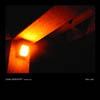 John Bischoff is one of the best-known Bay-area electronic composers.For decades he has been producing electronic and computer-based music,and his newest release on 23five collects recent (1999-2002) worksusing the Max/MSP language. My limited knowledge prohibits me fromunderstanding how this software allows a fuller realization of thetheory Bischoff says links all seven pieces on Aperture."Reflective intention" describes a situation in which sound structureis determined "not only through the predetermined elements which gointo a piece, but also through the active process of listening to themusic as it happens and responding accordingly." I cannot untangle allof Bischoff's heady liner notes; also, I cannot see how his "reflectiveintention" could not just as easily be called improvisation. I amcomfortable to call this improvised computer music, and fine music atthat. The variety of compositional structure alone makes Aperture apleasant listen. The opening "Piano 7hz" features thick, chiming soundfragments spread sluggishly across intermittent clinks and low rumbles,at a lazy, decaying interval with pacing that recalls Morton Feldman.Earlier tracks like "Immaterial States" and "Graviton" are arrangedaround a latticework of extended sounds that evolve from low-levelmachine chugs to piercing whines, impressive in their ability to evokemovement or suggest visual correspondents without defining the natureor origin of the individual sounds. All six tracks on Aperturewere recorded in real-time, producing a temptation, in the listener, togrant the most complex works a precedence relating to the assumedintensity or struggle of their birth. One of the most enjoyable pieceshere, however, is probably the most simple. "Sealed Cantus" is acollaborative track created from two sound sources, the recorded soundof a water fountain sculpture by Kenneth Atchley and Bischoff'smanipulation of static. The arresting density of the resulting track istreated to a subtle structuring, leading the rapt listener toward thepiece's harrowing finale. Aperture's title track, one of thefour recordings from 2002, provides neat closure to a disc that is bothchallenging and remarkable in its potential for repeated listening andaccessibility as a cohesive statement. "Aperture" condenses much of theideas represented in the previous six tracks into a simplerise-and-fall movement, emphasizing the collective statement made bythese essentially "separate" works, and the seductive aura ofBischoff's music as a whole.
John Bischoff is one of the best-known Bay-area electronic composers.For decades he has been producing electronic and computer-based music,and his newest release on 23five collects recent (1999-2002) worksusing the Max/MSP language. My limited knowledge prohibits me fromunderstanding how this software allows a fuller realization of thetheory Bischoff says links all seven pieces on Aperture."Reflective intention" describes a situation in which sound structureis determined "not only through the predetermined elements which gointo a piece, but also through the active process of listening to themusic as it happens and responding accordingly." I cannot untangle allof Bischoff's heady liner notes; also, I cannot see how his "reflectiveintention" could not just as easily be called improvisation. I amcomfortable to call this improvised computer music, and fine music atthat. The variety of compositional structure alone makes Aperture apleasant listen. The opening "Piano 7hz" features thick, chiming soundfragments spread sluggishly across intermittent clinks and low rumbles,at a lazy, decaying interval with pacing that recalls Morton Feldman.Earlier tracks like "Immaterial States" and "Graviton" are arrangedaround a latticework of extended sounds that evolve from low-levelmachine chugs to piercing whines, impressive in their ability to evokemovement or suggest visual correspondents without defining the natureor origin of the individual sounds. All six tracks on Aperturewere recorded in real-time, producing a temptation, in the listener, togrant the most complex works a precedence relating to the assumedintensity or struggle of their birth. One of the most enjoyable pieceshere, however, is probably the most simple. "Sealed Cantus" is acollaborative track created from two sound sources, the recorded soundof a water fountain sculpture by Kenneth Atchley and Bischoff'smanipulation of static. The arresting density of the resulting track istreated to a subtle structuring, leading the rapt listener toward thepiece's harrowing finale. Aperture's title track, one of thefour recordings from 2002, provides neat closure to a disc that is bothchallenging and remarkable in its potential for repeated listening andaccessibility as a cohesive statement. "Aperture" condenses much of theideas represented in the previous six tracks into a simplerise-and-fall movement, emphasizing the collective statement made bythese essentially "separate" works, and the seductive aura ofBischoff's music as a whole.samples:
Read More

